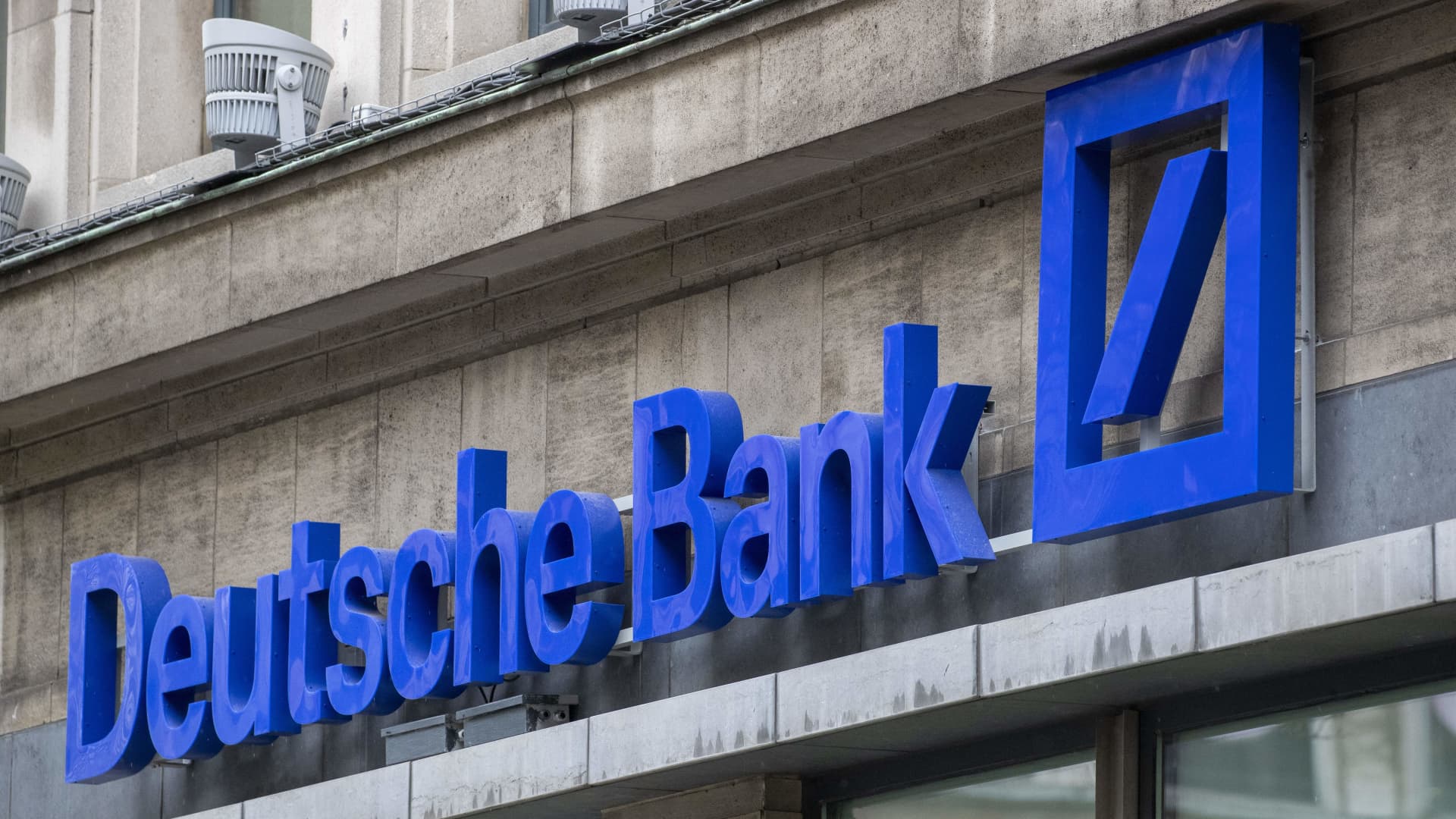Deutsche Bank’s Financial Performance: A Tale of Resilience and Strategic Shifts
Introduction
In the ever-evolving landscape of global finance, Deutsche Bank stands as a testament to resilience and strategic adaptability. The bank’s recent financial performance has been a rollercoaster of challenges and triumphs, reflecting the broader economic uncertainties and the bank’s proactive measures to navigate them. This report explores the key factors driving Deutsche Bank’s performance, highlighting its successes, challenges, and strategic outlook.
Key Performance Highlights
Profitability Surge
Deutsche Bank has demonstrated significant improvements in profitability, with several quarters exceeding analyst expectations. The first quarter of 2025 was particularly noteworthy, with a pre-tax profit of €2.8 billion, a 39% year-on-year increase. This figure not only surpassed expectations by 7% but also marked the bank’s best quarterly result in over a decade. The positive trend continued into the second quarter, with a net profit attributable to shareholders of €1.485 billion, significantly higher than the forecasted €1.2 billion. The robust performance in the first half of 2025 resulted in the highest profits since 2007, underscoring the bank’s strong financial health.
Investment Banking Recovery
A significant driver of Deutsche Bank’s improved performance has been the recovery and strong performance of its investment banking division. The bank has seen a substantial increase in revenue from bond and currency trading due to volatile markets. This uptick in investment banking activity has offset dips in other corporate operations, highlighting the division’s pivotal role in bolstering the bank’s overall financial health. The trading unit achieved record revenues amidst heightened global market volatility, demonstrating its ability to capitalize on market fluctuations.
Strategic Cost Management
Deutsche Bank has been actively managing its costs to enhance profitability. While there was a missed cost target, the bank has demonstrated a commitment to streamlining operations and reducing expenses. This strategic focus on cost management has contributed to the improved bottom line, allowing the bank to allocate resources more efficiently and improve its overall financial stability.
Navigating Challenges
Despite the positive trends, Deutsche Bank has faced its share of challenges. European banks overall are grappling with the effects of a lower interest rate environment, which puts pressure on net interest margins, a key source of revenue for traditional banking operations. The strength of the euro against the U.S. dollar has also presented challenges, impacting the bank’s financial results due to currency translation effects. These external factors require Deutsche Bank to adapt and innovate to maintain its competitive edge and financial performance.
Strategic Outlook and Future Initiatives
Revenue Optimism
Deutsche Bank has expressed optimism about its future revenues, driven by its strong performance in key divisions and its strategic initiatives. The bank has raised its revenue outlook, indicating confidence in its ability to generate sustainable growth. This optimism is underpinned by the bank’s diversified business model and its ability to adapt to changing market conditions.
Share Buyback Program
In a move signaling confidence in its financial position and future prospects, Deutsche Bank launched a €750 million share buyback program. This initiative is designed to return value to shareholders and reflects the bank’s strong capital position. Share buybacks can also have a positive impact on earnings per share, further enhancing shareholder value.
Adapting to Market Dynamics
Deutsche Bank recognizes the need to adapt to evolving market dynamics and geopolitical uncertainties. The bank is focused on navigating a lower interest rate environment and addressing the challenges posed by currency fluctuations. By remaining agile and responsive to market changes, Deutsche Bank aims to maintain its competitive edge and deliver sustainable financial performance.
Headwinds and Risk Factors
Legal Provisions and Lawsuits
Despite the overall positive trajectory, Deutsche Bank has faced setbacks related to legal provisions and lawsuits. In one instance, a large provision for investor lawsuits at its Postbank division led to an interruption in a 15-quarter profit streak. Setting aside substantial amounts for legal provisions can significantly impact the bank’s profitability and financial stability.
Geopolitical Uncertainty
Geopolitical uncertainties, including U.S. tariffs, have weighed on Deutsche Bank’s outlook. These external factors create volatility and uncertainty in the global market, potentially impacting the bank’s business operations and financial performance. The bank must carefully monitor and manage these risks to mitigate their potential impact.
Capital Ratio
Deutsche Bank’s CET 1 capital ratio, a key measure of bank solvency, was reported at 13.8%, unchanged from the previous quarter. Maintaining a strong capital ratio is crucial for ensuring the bank’s stability and resilience in the face of market stress. While the ratio remained stable, ongoing efforts to optimize capital management are essential.
Conclusion
Deutsche Bank’s recent financial performance reflects a complex interplay of strategic successes and external challenges. The bank’s strong profitability in the first half of 2025, driven by a robust investment banking division and strategic cost management, demonstrates its resilience and adaptability. While headwinds such as the lower interest rate environment, currency fluctuations, and legal provisions pose ongoing challenges, Deutsche Bank’s proactive approach to managing these risks positions it for sustainable growth. With a renewed focus on revenue optimism, strategic initiatives like share buybacks, and a commitment to navigating market dynamics, Deutsche Bank is poised to continue its journey towards long-term success.
Charting the Course: Deutsche Bank’s Future Trajectory
Deutsche Bank’s journey is not just about numbers; it’s about strategic vision and adaptability. The bank’s ability to navigate through turbulent waters and emerge stronger speaks volumes about its underlying resilience. As Deutsche Bank continues to evolve, its focus on innovation, sustainable growth, and shareholder value will be critical in shaping its future trajectory. The bank’s strategic shifts and resilience in the face of challenges highlight its potential to remain a key player in the global financial landscape.

